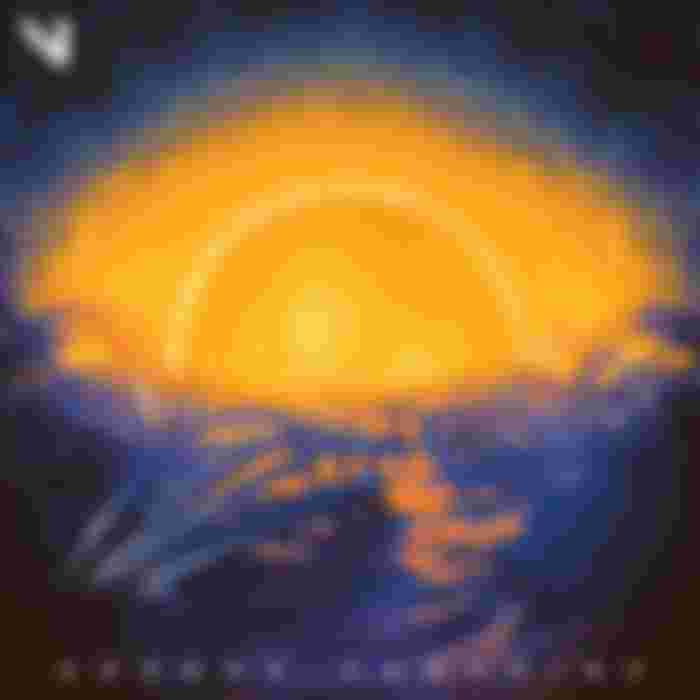Then he was by my side. We were walking along the sidewalk. There was a lot of sunshine that day. His forehead is always wrinkled in the sun, his eyes are closed. He was looking at me with frowning eyes. I thought 'a lot of orange sunshine; / and you were'.

In Jibanananda Das's poem 'Naked Lonely Hand', it is said of a woman, 'who has loved me forever / but whose face I have never seen'. So when I start to see the colors of the sun because he is by my side and he is by my side, a slightly outstanding feeling is being driven away; Then why did the poem written about him whose face was never seen come to my mind? Doesn't this feeling of mine speak of an extinct city, of a gray palace in that city, and of the shores of the Indian Ocean or the shores of the Mediterranean Sea, crossing the Indus River to make life a little more enjoyable?
Starting from scratch, when I think about it, I remember reading one of Farhad Khan's essays called 'Shabder Maja', the little word is no longer used in its original meaning. There are more words in the Bengali language which have no connection with the original meaning of the present meaning. I found out Farhad Khan's writing - 'trivial, insignificant, in a small sense, the use of little words is more. But the word little is also used in a general, unimportant sense. The original meaning of the word has little to do with the current meaning. The basic meaning of a little word is equality, equality. '

I thought, when was the meaning of the word? Certainly before Rabindranath Tagore. When Lalon Fakir is composing 'Pabe Samanye Ki Tar Dekha' or 'Samanye Ki Tere Marm Jaana Jaaye'; Even after that, Rabindranath's 'Little Loss' has been written.
I read the poem 'Little Loss' in the textbook as a child. I don't remember which class had the text. I remember that the buffalo of Kashi, Karuna, was bathing in the winter air in the month of Magh, in a secluded rocky ghat in Champakban, a village far from Puri. "After finishing the bath, when all the women got up on the shore, the buffalo said, 'Uhu! Die in the winter, / All the bodies have risen, Shihri, / Jbale de agun olo sahchari- / Shit nibarib onle'."
Then the story is known to almost everyone. After burning the poor man's hut and heating himself, Dipta-Arun-Basna Rani went back to the palace. Judgment came to the king and the queen was severely punished. "On the way, the king said to the wire," Ask for it at the door, at your doorstep. It will be yours. "
Little has been used in the title of Rabindranath's poems and this triviality has been expressed in the eyes of Kashi Rani. In Lalon's song but the little word came in a small sense. I can't understand the more esoteric information of the song. 'Doesn't he see a little / whose outline is not in the Vedas' seems to be just talking about Paramatma. However, 'just as there is fire in the stone / he takes it out by knocking / Siraj gives Sai, so education / fool Lalon dances.'
Our ancestors learned to light fires by knocking on rocks. Of course the fire was in nature before. The incident of burning the forest by rubbing the trees is going on. By learning to light fires and use fires from nature, people were able to distinguish themselves from the fauna. According to anthropologist Richard Rangham, hominids promote themselves as human beings by discovering and controlling the use of fire. He thinks this time is 1.6 million years ago. Nowadays cooking has become a normal thing for us. But in the beginning learning to cook was a big event. This little start was the beginning of an extraordinary day when people across the ages learned to roast raw meat. Fire is not just cooking, it is proof that man is really man. However, there has been a lot of criticism of Richard Rangham's words. In 2009, he presented his theories in the book 'Catching Fire'. There is a lot of debate about when the fire was discovered and who discovered it, Neanderthals, Homo erectus or later humans.
What can be said about the fire! I read about the phoenix, the bird of fire, when I was a child! According to Greek mythology, the phoenix is a sacred 'firefly' whose life cycle revolves around thousands of years. The bird set its own house on fire before the messenger arrived to confirm the death. And new life is born from that ashes. His indestructible journey begins. Phoenix civilization was the first to imagine the phoenix bird. The presence of this bird can also be noticed in the religious mythology of all other civilizations, such as Garuda, the vehicle of the god Vishnu in India, and Benu or Bennu in ancient Egypt. The word benu or benu in Egyptian mythology means 'coming out of the fire beautifully'. Anyway, 'Let's not waste words on fire / let's say by burning a match stick: this is the real fire.'
Now let's talk about my personal fire. I was born in Vadughar, a village in Brahmanbaria. During our childhood, many houses in the village were burnt down in the Rizvi-Wahhabi conflict. Before we talk about this fire, let's talk about our village. The village is mentioned in a poem called 'Rasta' in Al-Mahmud's book 'Lok-Lokantar'. Vadugarh has been misspelled in the poem. It is said that the village got its name from the average of one Bahadur. The Vadhu festival is also mentioned somewhere. However, it is safe to assume that this festival in the Purulia region did not take place in the village of Vadughar in Samatata. A fair is held in our Vadughar every year on the 14th of Baishakh, which is known as the Banni of Vadughar in the entire Brahmanbaria region. This mela-banni is mentioned in the poems of Mohammad Mahfuzullah. In that poem, the name of the village was spelled correctly. It seems that I had read the poem 'How far is Vadughar, is there still Melabanni' in a compilation of Brahmanbaria Samiti a long time ago. This poem must be hard to find. I did not try to find.
Al-Mahmoud wrote in a poem titled 'Rasta' dedicated to his friend Chandipada Chakraborty, 'If you go, you will see the Kautli Railway Bridge in Peru / As far as people can go / Home.' Our village, like all other villages in the suburbs, is truly densely populated, with rurality mingling with urbanity among the villagers. In the last three decades, the city has come a long way towards our village. As a result, the people of the village have become more urban, the rurality of the village has shifted, the rural atmosphere has been completely abandoned. There is no such thing as Al-Mahmoud's poem 'The smell of peasants is like the wind'. 'Nishen of siktanil sari hanging on the platform of Lau' has now become a memory of the past. However, there is the 'river like the forehead line of Kisan', along the banks of which Malopara we used to go to Kumarpara to hear the sound of flies satisfied with the smell of shuntki. Many of the Malos of Advaita Mallavarman's novel 'Titus is the Name of a River' were also in our village. Now there is none of them. Leaving the village, the grandfather who left the country has left my village. The story of the burning of many houses in the village during the Rizvi-Wahhabi conflict in our childhood, the exodus of this grandfather of mine, whom I used to compare with Indranath in the novel 'Srikant', is much later than that fire. Of course, I have seen all such incidents of emigration from a very young age. More of my mother's aunt is gone. This is not leaving the country, deportation is a punishment. Yet as a child I was a third-party child, I thought, there is a country where aunts leave. I have to stay in this country.
As far as I can remember, both Rizvi and the Wahhabis claim to be Sunnis and use the two names trivially when speaking of the other. When one side of them burned the other side's house, I was very scared of the service. I was born into a small group outside of these two parties, who desperately try to establish themselves as Muslims and whose movements are almost exclusively for non-Muslims. I have had to grow up in a lot of social oppression since childhood just for religious reasons. The fire that broke out in our village caused panic in my mind. After many years, after the fire in Santalpalli, Gobindganj, Gaibandha, I found out how the people there are. I found out that the children of Santalpalli are growing up in the same panic. That day on November 7, 2016 is known as 'Sengel Maha' to Santal children. Not only the children, but also the adults of Santalpalli remember that day by this name. 'Sengel Maha' means 'day of fire'. The word 'sengel' means fire, 'maha' means day. But Maha is not just a day, it is a special day and it can be used in both good and bad senses. Being used in an evil sense here.


thanks for sharing!